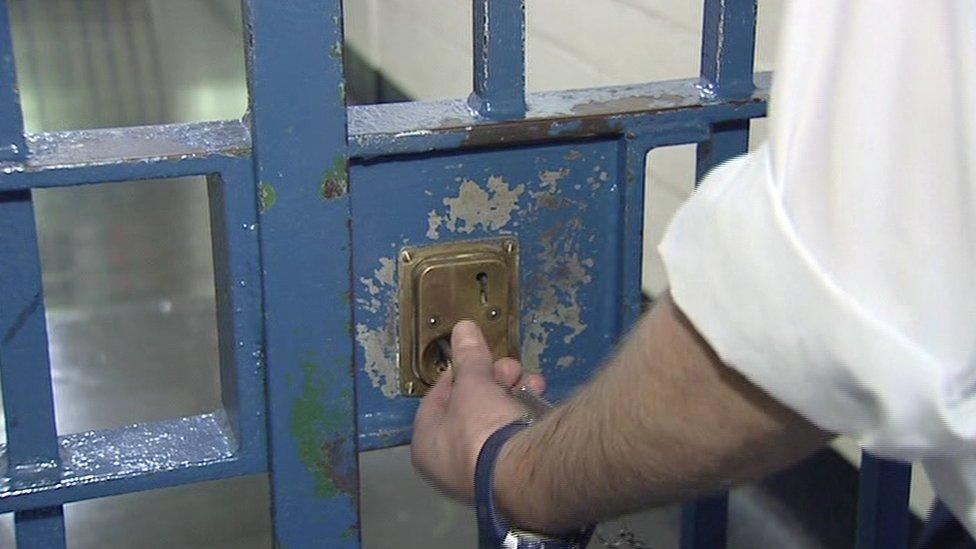Listeners: NI prisoner helps to change lives of distressed inmates
- Published

The Listeners scheme is run by the Samaritans, who provide a 12-week training course for prisoners who pass an initial selection and vetting process
A prisoner trained to counsel other inmates who are in emotional distress has spoken about how it has changed his life and lives of those he has helped.
The "Listeners" scheme operates in Northern Ireland's two biggest prisons.
To marks its 10th anniversary, one of Maghaberry Prison's Listeners agreed to speak to the BBC about his work.
He did not want to be identified, so we agreed to call him Mark. He said Listeners can often be the "only strong support network" for some prisoners.
'Disowned'
Mark has served five years of an eight-and-a-half year indeterminate sentence for causing grievous bodily harm.
He has been working as a Listener for almost three years and said he hopes to do similar work when he is released from prison.
"When I came in here I had to rehabilitate myself and part of that was to be more outward focusing," he said.
Anyone wanting to contact Mark or any of the other seven Listeners in Maghaberry can do so informally by approaching them directly, or by asking a prison officer to arrange a meeting.
At busy times, Mark often speaks to three prisoners a day.
"It's seasonal, Christmas is a very busy time," he said.
"Predominantly, family is an important factor for people in here. It's one of the few things that people have left so if there's something going on with family life that can be a big issue.
"Some people are maybe disowned or some people don't have a family, so we are probably their only strong support network.
"And there's a lot of people with poor mental health in here, so that's another big one, and drugs."
'Horror stories'
Part of the training given to the Listeners is how to cope with some of the personal accounts they hear.
Mark says it can be difficult work, but also rewarding.
"Sometimes you do hear some horror stories and it's not nice," he said.
"But it's always good to walk away from a cell knowing that that person is feeling a little bit better and you might have had a positive impact in their life.
"It's great whenever you go in there and you are able to build that person back up and you know you have maybe saved a life or improved that person's life."
- Published12 October 2016
